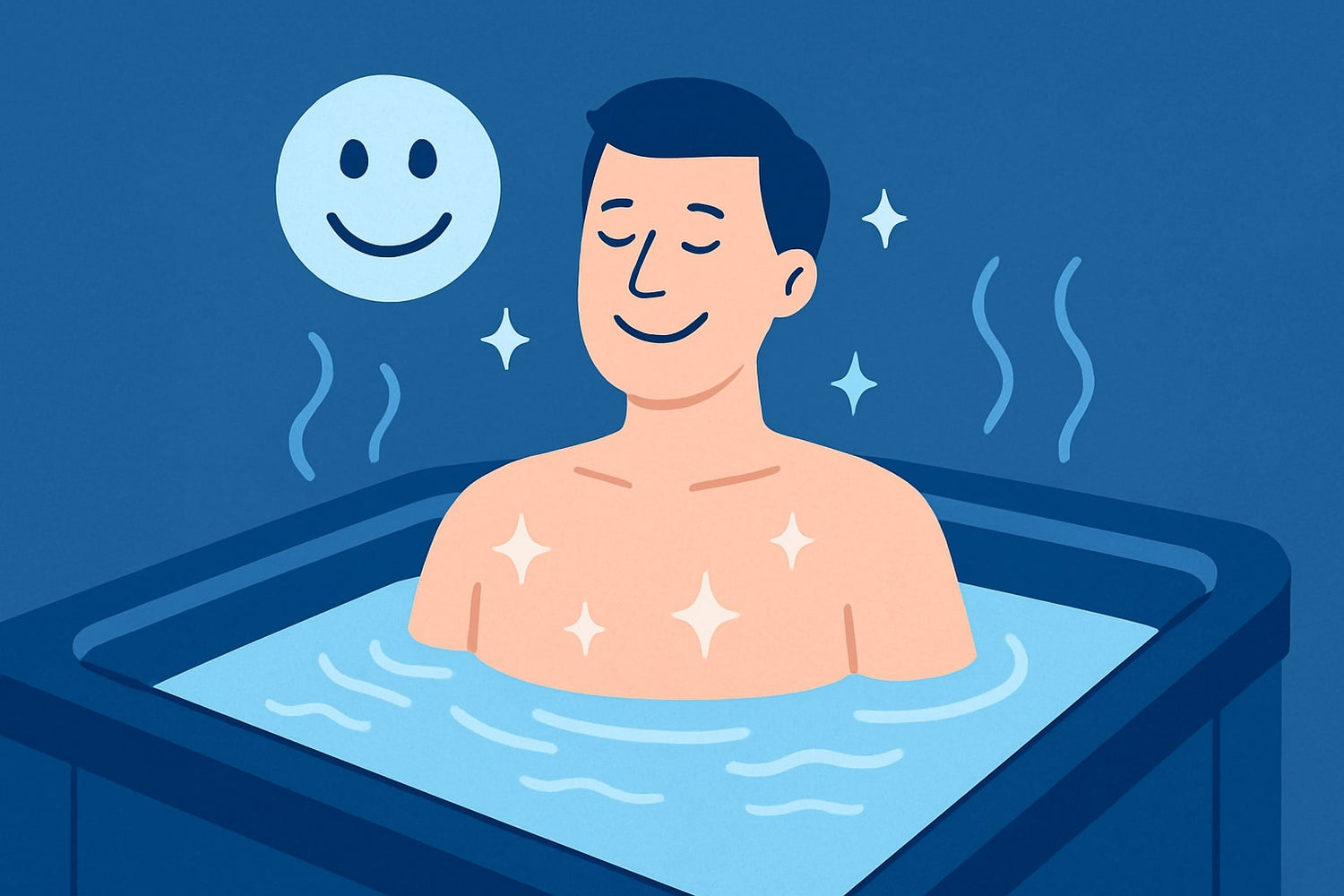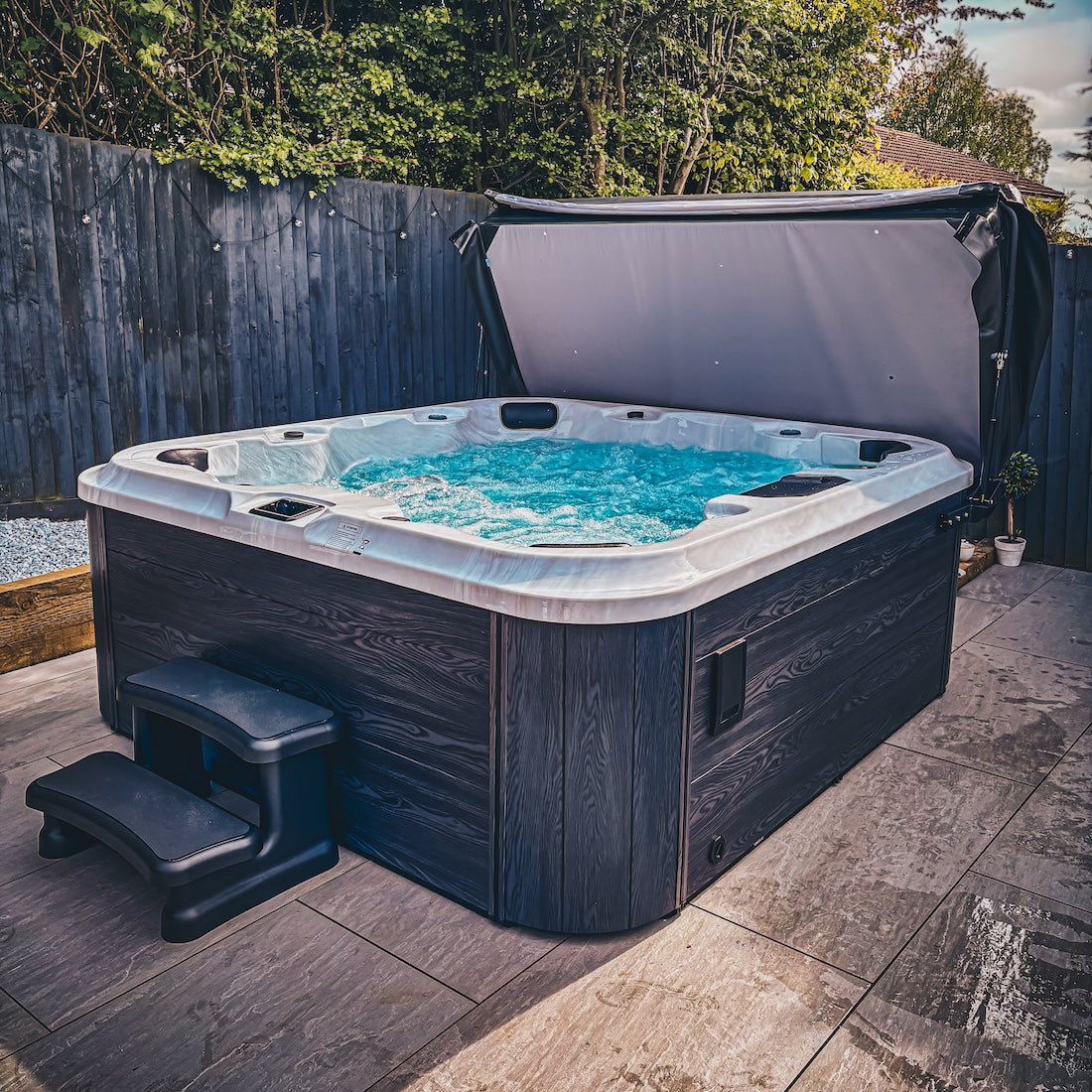Let’s set the scene. You arrive home after a long day at work, and you’re feeling quite worn down and perhaps even a little stressed out. All you want to do is relax and unwind and forget about the day’s events.
You might not realise it, but one of the best ways to relax and unwind from a particularly challenging day is by having a soak in a hot tub. There are a huge number of health benefits to using a hot tub regularly, including for those with arthritis. Take a look at the following hot tub health benefits to find out why else you need a hot tub in your home.
Table of Contents
Don't want to read? Check out the video highlights, below...
Stress Relief
One of the biggest reasons why thousands of people across the UK enjoy their hot tubs is because they are great at providing stress relief. When you immerse yourself in the warm water of a hot tub, you can instantly feel the day’s stresses leaving your body. We've covered before four ways that a hot tub can improve your mental health and it's so true. We get the feedback from customers all the time about how much more relaxed they feel.
The warm water in the hot tub helps make your blood flow easier and become more oxygenated, allowing you to breathe slower and more deeply. Those actions alone will reduce the levels of stress in your body and improve your overall mood.
You can further enhance your stress relief when you’re in a hot tub by listening to some soft music, having low lighting, and even aromatherapy.

Lower Blood Pressure
Are you someone that experiences high blood pressure? There is scientific evidence to suggest that hot tubs can help to lower your body’s blood pressure.
For example, one study revealed that 21 test subjects had lower blood pressure after only ten minutes of immersion in a hot tub. That makes hot tubs ideal for people who might be at risk of heart disease or suffer from hypertension (high blood pressure).
And in an article by Harvard Medical School, Dr Adolph Hutter, a professor of medicine, explains that the warm water in a hot tub causes your blood vessels to dilate and can help to reduce the risk of heart attacks and strokes.
Muscle Relaxation
Of course, it’s not just the warm water itself that offers numerous health benefits to hot tub users. The warm water, coupled with the hot tub’s massaging actions, help to provide people with relaxed muscles and the soothing of tight and tense muscles.
When your muscles get relaxed, it lowers inflammation and significantly reduces aches and pains that you might be experiencing. You could even think of a hot tub as your personal massage therapist, except that warm water is massaging you and not another person!
Muscle pain and sore joints aren’t just common complaints of athletes but also from people in everyday situations. If you have a physically-demanding job, for example, a hot tub can be hugely beneficial to diminishing muscle pain.
You'll Get a Better Night's Sleep
Are you someone that seldom gets a good night’s sleep? Do you feel more tired in the morning than you did before you went to bed? If the answer to both questions is yes, a hot tub can help you get a better night’s sleep.
Numerous scientific studies have been conducted on the subject of hydrotherapy and insomnia. One study, for example, found that hot tubs used by older female adults resulted in a more profound and more restful sleep.
Naturally, hot tubs can benefit people of all ages and genders that have trouble getting a good night’s sleep. If you experience insomnia, spending a bit of time in a hot tub before going to bed could help you sleep properly and feel fresh and alert when you wake up.
Weight Loss and Insulin Sensitivity
It might seem like a radical statement to make, but hot tubs offer the potential to help people burn calories. A study conducted by Loughborough University concluded that immersing yourself for an hour in warm water is equal to the calorie loss from a 30-minute walk.
Of course, if you want to maintain a healthy weight, you should always include some form of regular physical exercise as part of your fitness regime. So, how does a hot tub help you burn calories when you’re doing nothing but having a soak in warm water? Looking to help your body detox? A regular soak in a hot tub can help with that, too!
The study found that passive heating on HSP70, a “heat shock” protein found in the body, helps the body’s metabolism and thus burns calories in the same way as running, cycling, or doing other physical activity.
Additionally, another scientific study suggests that the effects on HSP70 proteins through heat therapies like hot tubs can improve insulin sensitivity. What that means is people can better manage their diabetes.
Reduced Headaches
Earlier, you learned that the warm water and massaging action of hot tubs could cause your blood vessels to dilate. The result of that is lower blood pressure, of course, but did you know that it can also help you to reduce headaches?
If you regularly experience tension headaches and have hypertension (high blood pressure), regularly using a hot tub can keep your headaches to a minimum. It’s a natural way to have a head free of aches and pains.
You'll Feel Happier and Less Anxious
Are you someone that feels anxious quite a lot each day? If so, you’ll likely find that a hot tub can benefit your mental health. Researchers from East Carolina University found that immersion in warm water (hydrotherapy) decreased anxiety.
As you can appreciate, people can become anxious for various reasons, and the ongoing COVID-19 pandemic has undoubtedly amplified anxiety levels in people that experience it. A hot tub can help diminish feelings of anxiety.
Conclusion
Most people know that a hot tub is perfect for social occasions or just for feeling invigorated after a particularly challenging day. But, hot tubs also offer numerous health benefits and even get recommended for sports injury therapy.
The effects of the massaging jets of warm water are soothing, calming, and hot tubs can even prevent certain medical conditions like heart disease.





